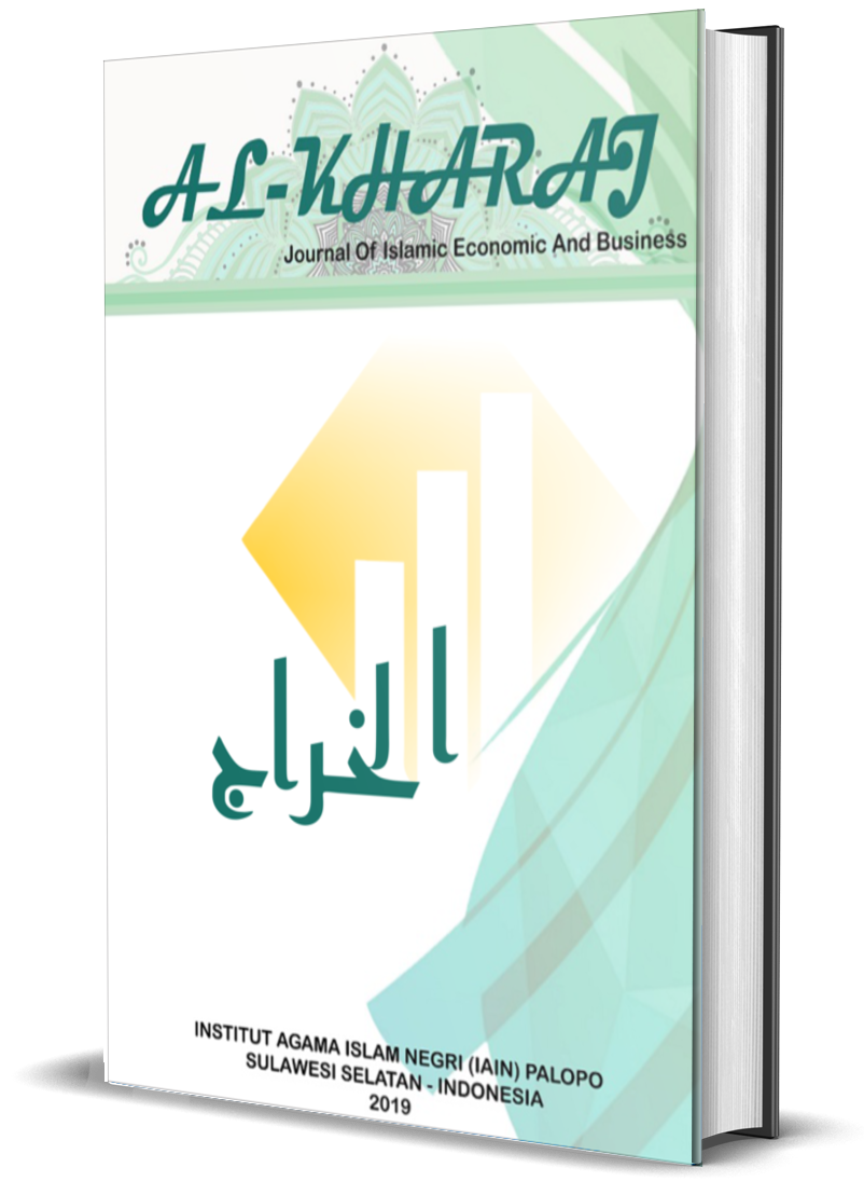Integration Halal Supply Chain, Sustainability, Environmental Ethics, and Maqashid Syariah in The Halal Industry
DOI:
https://doi.org/10.24256/kharaj.v7i3.7758Keywords:
Halal Supply Chain, Sustainability, Environmental Ethics, Maqasid Syariah, Halal IndustryAbstract
In the face of global dynamics and growing Muslim consumer awareness of halal products, as well as environmental concerns, the integration of the Halal Supply Chain, sustainability principles, ecological ethics, and Maqasid Syariah (the principles of Islamic law) is becoming increasingly important. The method used is a literature review, which examines research results to provide a comprehensive overview of the development and position of this research compared to existing research. This integration of concepts is intended to encourage macro policies related to the halal industry and will organize micro areas related to company or business actor practices. This article aims to illustrate the interrelationship of these concepts within a mutually supportive strategic framework, resulting in the formulation of an integrated model that not only meets halal standards but is also socially and environmentally responsible within the corridor of Islamic values. The implications can increase consumer trust, strengthen brand image, expand market access, and contribute to sustainable development.
References
Adzkiya, U. (2020). Analisis Maqashid Al-Syariah Dalam Sistem Ekonomi Islam dan Pancasila. JESI (Jurnal Ekonomi Syariah Indonesia), 10(1), 23. https://doi.org/10.21927/jesi.2020.10(1).23-35
Andriani, W. (2022). Penggunaan Metode Sistematik Literatur Review dalam Penelitian Ilmu Sosiologi. Jurnal PTK dan Pendidikan, 7(2). https://doi.org/10.18592/ptk.v7i2.5632
Deza, R. L. R., & Sofyani, H. (2022). Syariah Governance dan Maqashid Syariah di Perbankan Syariah di Indonesia. Reviu Akuntansi dan Bisnis Indonesia, 6(2), 11–34. https://doi.org/10.18196/rabin.v6i2.12857
Elkington, J. (1998). Cannibals with Forks: The Triple Bottom Line of 21st Century Business. New Society Publishers.
Faizah, U. (2020). ETIKA LINGKUNGAN DAN APLIKASINYA DALAM PENDIDIKAN MENURUT PERSPEKTIF AKSIOLOGI. Jurnal Filsafat Indonesia, 3(1), 14–22. https://doi.org/10.23887/jfi.v3i1.22446
Firdaus, F., & Safitri, W. (2023). Analisis Halal Supply Chain Serta Pengaruhnya Terhadap Performance UMKM Makanan di Kabupaten Bekasi. JEMSI (Jurnal Ekonomi, Manajemen, dan Akuntansi), 9(4), 1101–1112. https://doi.org/10.35870/jemsi.v9i4.1239
Hapsoro, N. A., & Bangun, K. (2020). PERKEMBANGAN PEMBANGUNAN BERKELANJUTAN DILIHAT DARI ASPEK EKONOMI DI INDONESIA. Lakar: Jurnal Arsitektur, 3(2), 88. https://doi.org/10.30998/lja.v3i2.7046
Hasanah, M., & Fahruddin, Abd. R. (2021). Analisis Halal Supply Chain Management (SCM) Dalam Perspektif Maqashid Syariah. At-Tasharruf ‘Jurnal Kajian Ekonomi dan Bisnis Syariah’, 2(2), 73–80. https://doi.org/10.32528/at.v2i2.5424
Hoelman et al, M. B. (2015). Panduan SDGs Untuk Pemerintah Daerah (Kota dan Kabupaten) dan Pemangku Kepentingan Daerah (pp. 1–64). International NGO Forum on Indonesian Development.
Hudha, A. M., Husamah, & Rahardjanto, A. (2019). Etika Lingkungan (Teori dan Praktek Pembelajarannya) (pp. 1–170). Penerbit Universitas Muhammadiyah Malang.
IHATEC. (2023, June 26). Supply Chain Halal di Indonesia. Indonesia Halal Training Center. https://ihatec.com/seperti-apa-penerapan-supply-chain-halal-di-indonesia/
Irwan, M. (2021). KEBUTUHAN DAN PENGELOLAAN HARTA DALAM MAQASHID SYARIAH. Elastisitas - Jurnal Ekonomi Pembangunan, 3(2), 160–174. https://doi.org/10.29303/e-jep.v3i2.47
Kurniawan, A., & Hudafi, H. (2021). KONSEP MAQASHID SYARIAH IMAM ASY-SYATIBI DALAM KITAB AL-MUWAFAQAT. Al-Mabsut, 15(1), 30–38.
Nasution, M. S. A., & Nasution, R. H. (n.d.). FILSAFAT HUKUM Islam & Maqashid SYARIAH.
Pramesti, S. D., & Amir, F. (2023). IMPELENTASI HALAL SUPPLY CHAIN MANAGEMENT SEBAGAI STRATEGI PENINGKATAN LABA PADA UMKM DI KABUPATEN BANGKALAN. 08(01).
Qanita, A., Maghfuroh, N. L., & Muhammad, Z. (2024). INTEGRASI HAS BERBASIS BLOCKCHAIN SEBAGAI HALAL SUSTAINABILITY DALAM PERSPEKTIF MAQASHID SYARIAH. 7(1).
Suastrini, F. (2023). MANAJEMEN LOGISTIK HALAL. Nusantara Hasana Journal, 2(9), 260–268. https://doi.org/10.59003/nhj.v2i9.838
Thohari, A. (2013). Epistemologi Fikih Lingkungan: Revitalisasi Konsep Masalahah. E-Journal Fakultas Syariah Dan Ilmu Hukum, 5(2), 146–161.
UU No. 33 Tahun 2014. (n.d.). Database Peraturan | JDIH BPK. Retrieved 12 June 2024, from http://peraturan.bpk.go.id/Details/38709/uu-no-33-tahun-2014
Waid, A., & Lestari, N. (2020). TEORI MAQASHID AL-SYARI’AH KONTEMPORER DALAM HUKUM ISLAM DAN RELEVANSINYA DENGAN PEMBANGUNAN EKONOMI NASIONAL. JURNAL LABATILA, 4(01), 94–110. https://doi.org/10.33507/lab.v4i01.270
Downloads
Published
How to Cite
Issue
Section
Citation Check
License
Copyright (c) 2025 Hikmatul - Hasanah, Devi Hardianti Rukmana, Mutmainnah, Moh. Ali Syaifudin Zuhri, Uke Cahya Ningrum, Mahfiyah

This work is licensed under a Creative Commons Attribution-ShareAlike 4.0 International License.
Authors retain copyright and grant the journal right of first publication with the work simultaneously licensed under a Creative Commons Attribution-ShareAlike 4.0 International License. In line with the license, authors are allowed to share and adapt the material. In addition, the material must be given appropriate credit, provided with a link to the license, and indicated if changes were made. If authors remix, transform or build upon the material, authors must distribute their contributions under the same license as the original.









